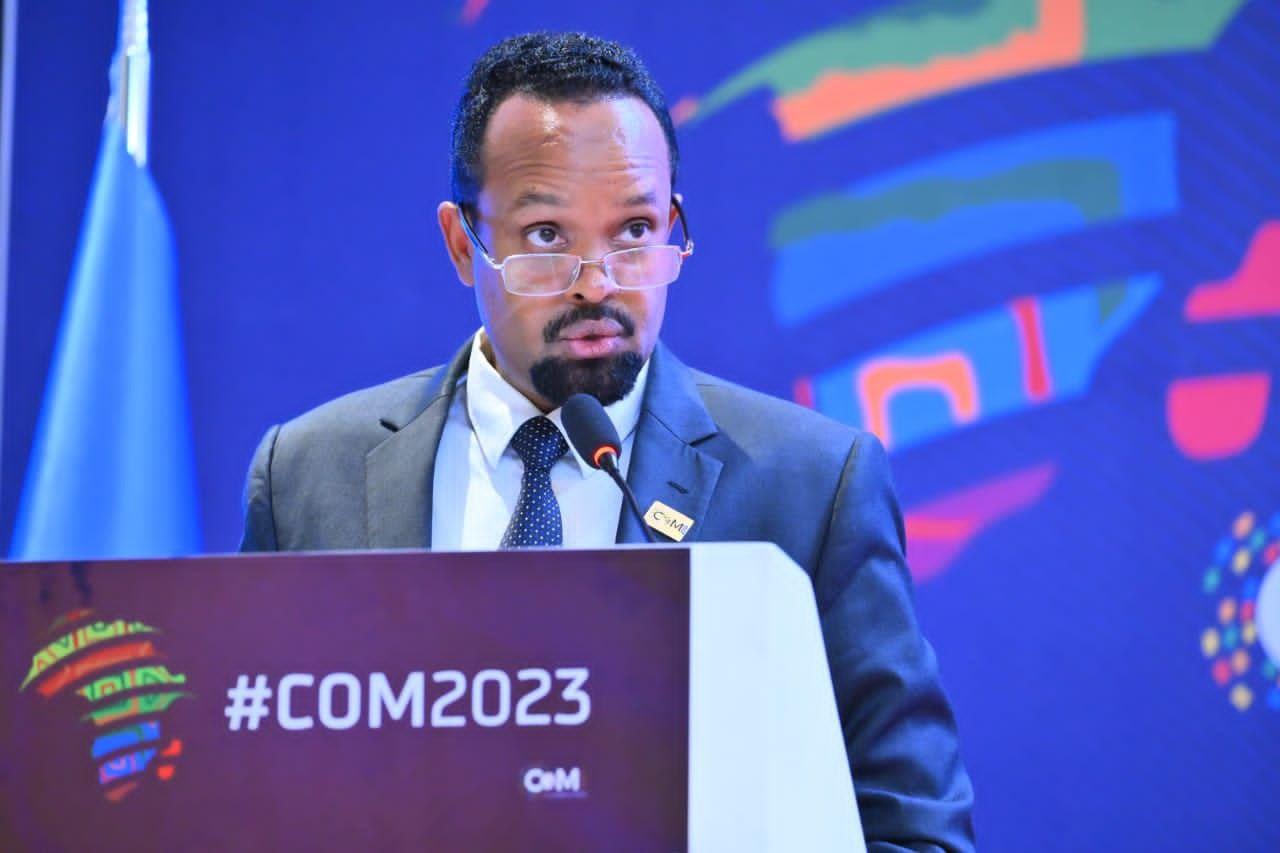Africa-Press – Ethiopia. Finance Minister of Ethiopia, Ahmed Shide said that Ethiopia is one of Africa’s recent examples of resilience in the face of multiple shocks.
The finance Minister Ahmed delivered speech on the 55th Conference of Ministers of Finance and Economic Planning is underway in Addis Ababa with the theme: “recovery and transformation in Africa to reduce inequalities and vulnerabilities.”
In his keynote address at the conference, the minister said that the current government of Ethiopia launched the Home-Grown Economic Reform in 2018 to ensure macro-economic stability, easing of doing business and addressing institutional constraints for inclusive and private-sector led growth.
Unfortunately, right after launching, the reform faced unexpected obstacles due to the outbreak of conflict in Tigray region, the COVID-19 pandemic, climate change induced shocks such as drought, and locust invasion in some part of the country, Ahmed pointed out.
“Amidst these internal and external shocks, the government exerted maximum effort to take the reform agenda forward and achieved remarkable results, including positive per capita income growth, better debt management, improved Foreign Direct Investment (FDI) flows and export performance, as well as privatization of public enterprises and liberalization of selected sectors, which have boosted private sector participation in the economy.”
He further stated Ethiopia also improved its domestic resource mobilization capacity through innovative reforms in tax administration, tax rates and application of information technologies.
In spite of these positive gains, most of the macro-economic imbalances such as fiscal deficit, foreign exchange depletion, galloping inflation and accumulated debt, remain stern economic setbacks, the minister acknowledged.
“We have therefore continued working on the second Home Grown Economic Reform to consolidate the gains and address current and emerging macroeconomic imbalances.
Furthermore, as we work towards peace consolidation, our reform also focuses on paving the way for equitable and inclusive post-conflict recovery that will contribute towards strengthening social cohesion among all Ethiopians,” according to him.
Speaking on the 55th Conference of Ministers of Finance and Economic Planning where they deliberate on Africa’s state of economic and social development, and regional integration, the finance minister underlined that Africa has a lot to do to resolve its socio-economic challenges, including the widening income inequalities and extreme poverty across the continent.
Until 2019, Africa was home to the world’s fastest-growing economies- a growth fueled partly by favorable terms of trade, better macroeconomic management and growing investment, Ahmed said. However, he argued that the advent of the COVID-19 changed this success story dramatically.
“The war in Eastern Europe disrupted global value chains, led to a spike in key commodity prices such as fuel, edible oil, wheat, and fertilizers as well as tightening of monetary policies in the developed countries, leading to an increase in global lending rates.”
Moreover, climate change induced droughts, floods and erratic rain patterns are not only disrupting economic activities and productivities, but also endanger millions of lives in our continent.
The combined impacts of the multiple and recurring global shocks are causing hardships unprecedented in recent memory and led to significant liquidity crunches in the economies of many African countries, the finance minister underscored.
The immediate and long-term consequences of COVID-19 and the global economic and security crisis are wakeup calls for Africa to rethink its development paradigms and seek homegrown solutions before the crisis engulf the continent, he urged.
For him, in order to address the multiple economic challenges of the African continent, it requires a collaborative and concentrated effort, which should be people-focused, sustainable in policy measures and inclusive enough in addressing the most vulnerable people.
The finance minister finally said the recent experience of his country (ETHIOPIA) on improving agricultural productivity to achieve food sovereignty is a prime example of exploiting collective wisdom of African stakeholders.
He also called upon all fellow Africans and partners to concentrate on their untapped potentials to transform the continent and eliminate undeserved poverty.
For More News And Analysis About Ethiopia Follow Africa-Press






